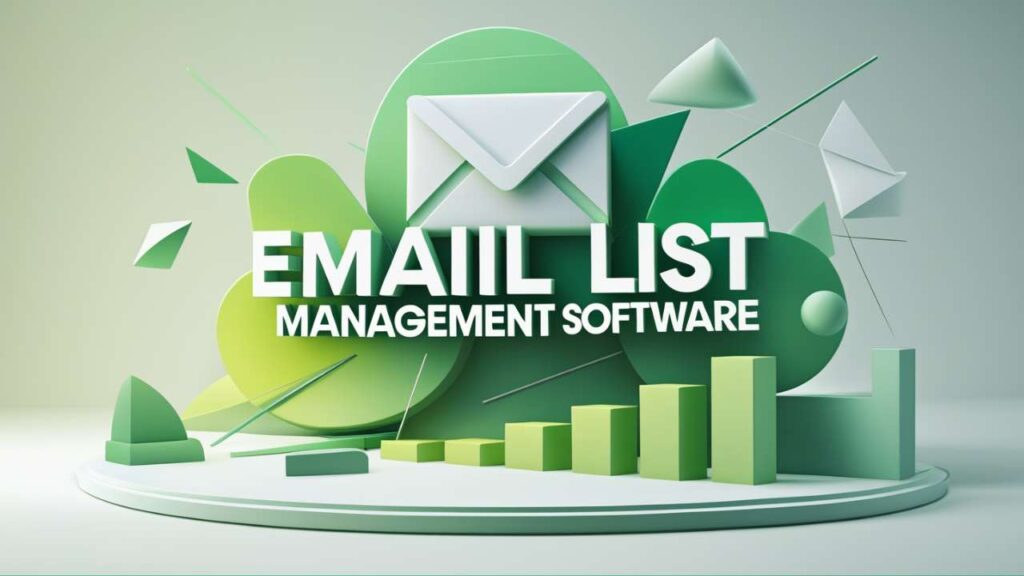Email marketing is still one of the most effective techniques for reaching out to an audience and keeping a good track of your email subscriptions is unavoidable. The right email list management solution assists you in making your marketing messages personalized, legal, and effective.
So in this article, we’ll have a look at the Top 10 Email List Management Software, the features they offer, their cost, and other related information that you may need for your business. As one of the most important forms of online advertisement, e-mail marketing is one of the key methods through which companies can reach their audience.
However, the list of emails lists should be well managed to achieve better and more meaningful marketing of products. The email list management system assures the correct handling of business processes and follows laws to produce the greatest effect on the campaign.
What is Email List Management Software?
Email stands for email list management system through which businesses can maintain, sort, and update their email subscribers list. It helps to perform actions such as grouping contacts by preferences, filtering out invalid email addresses, and correcting data protection policies. More so, these tools offer enhanced analysis of the subscriber behavior thus assisting the marketers on how to execute their campaigns.
Key Features:
- Direct contact approach for targeted marketing.
- Elimination of the invalid or old email lists automatically.
- CRM tools compatibility for enhancement of marketing.
- To monitor the campaign performance advanced analytics tools.
- GDPR and CAN-SPAM compliance tools.
- Ability to have templates and standardized workflow that can be tailored to meet organizational needs.
Why Email List Management is Critical
1. Boost Engagement and Personalization
The foremost reason for the importance of email list management in 2026 is personalization. Modern-day consumers expect that their experience should be tailor-made to them. And by segmenting your audience, you will be able to deliver targeted emails according to your audience’s needs, preferences, and behaviors, which are the reasons behind higher rates of engagement and more effective campaigns. Using email verification ensures that your personalized messages reach valid recipients, further boosting engagement and campaign effectiveness.
2. Deliverability
Email list management ensures that your emails reach real, engaged users. Cleaning your list on a regular basis and eliminating invalid or inactive emails helps improve the deliverability of your emails. This simply means that your emails will not be marked as spam but opened and acted upon.
3. Maintain Compliance with Privacy Laws
The rise of privacy regulations, such as GDPR, CAN-SPAM, and CCPA, puts additional pressure on email marketers to ensure their email lists comply. Email list management tools helps companies stay on the right side of the law through built-in compliance tools and verification that all recipients have given permission to receive communications.
4. Saves Time and Enhances Efficiency
It can be rather time-consuming to manually maintain an email list. Through the automation of list cleaning, segmentation, and reporting, email list management software can save businesses a huge amount of time and then let them focus on more strategic marketing efforts.
5. Enhancement of Return on Investment
Email list management enables the business to make better decisions on marketing. Businesses, by segmenting their audience based on behavior and preference, can create targeted campaigns that lead to higher conversion rates. The ability to send the right message to the right person at the right time improves campaign effectiveness and therefore leads to better ROI.
Benefits of Email List Management Software:
- Improved Campaign Efficiency: Reduces workload of managerial personnel and other employees Improves efficiency since employees focus more on core business functions when using this software.
- Enhanced Personalization: Allows for targeting so that clients can develop strong effective campaigns.
- Better Data Analytics Management Tools: It leaves data intact by providing updates and cleaning regularly.
- Compliance Assurance: It supports simplification of compliance with the law.
- Increased ROI: The effectiveness of the targeted campaigns as there is realization of better conversion.
- Scalability: Scales with your business requirements providing for more and larger subscribers.
10 Best Email List Management Software
1. Mailchimp
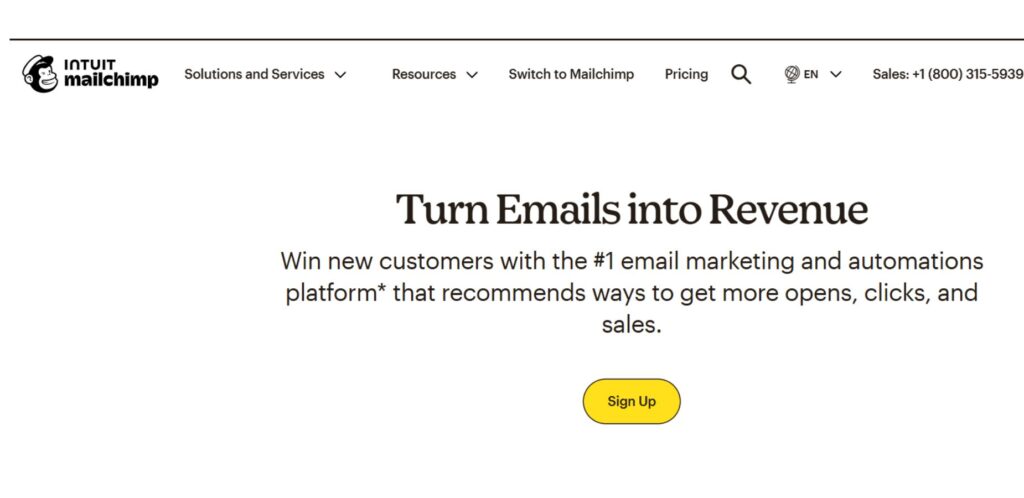
Mailchimp will be one of the top software in email list management Platforms. It has an easy-to-use interface and well-equipped features for marketing emails. It serves both small and large businesses, providing complex features for working with subscriptions and creating appealing messages.
Including the ability to post insightful content recommendations, effortless compatibility with more than two hundred applications, and appreciable website analytical tools it helps marketers to address customers properly and execute efficient communication. It also possesses a very friendly drag-and-drop editor that makes campaign creation easy for newbies and experienced marketers. However, the free version has its drawbacks; upgrading to paid packages unlocks additional features suitable for expanding businesses. Due to the superb customer service and flexibility Mailchimp offers, I still recommend it to companies that want to perform well in this kind of marketing.
Key Features:
- Advanced segmentation tools.
- AI-powered content writing suggestions.
- Integration with over 200 apps.
Pros:
- Intuitive drag-and-drop editor.
- Excellent customer support.
- Free plan available for beginners.
Cons:
- Limited functionality in the free plan.
- The slight learning curve for advanced features.
- Higher-tier plans can be pricey.
Ideal For: Small to medium-sized businesses.
Pricing: Starting at $9.99/month.
Rating: 4.8/5
Website: www.mailchimp.com
2. Constant Contact
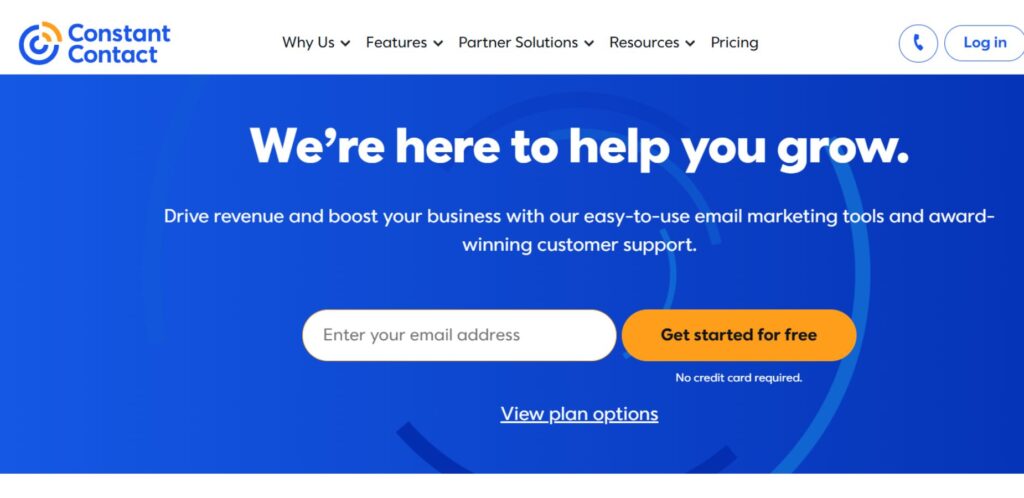
Constant Contact is a comprehensive solution for businesses seeking the Best Email list management system for growth. These features shall comprise event management, survey management, live campaign tracking, and pre-designed email automation tools processes.
The platform is also renowned for its capacity deliverability rates and simple-to-use design that enables users to access and sort out lists successfully. Lower-tier plans come loaded with basic automation options while revising the higher plans to include better marketing attributes. Nonprofits and small businesses love Constant Contact due to the features and its very easy-to-navigate dashboard.
Its slightly higher cost compared with the competition is compensated by the number of features provided and trustworthy support that makes it a good tool for businesses that need to reach a wider audience and accomplish their marketing objectives.
Key Features:
- Event and survey management tools.
- Real-time campaign tracking.
- Pre-built automation workflows.
Pros:
- Excellent deliverability rates.
- Easy-to-use interface.
- Wide range of integrations.
Cons:
- Limited automation in lower plans.
- Basic reporting features.
- Slightly higher starting price.
Ideal For: Nonprofits and small businesses.
Pricing: Starting at $12/month.
Rating: 4.6/5
Website: www.constantcontact.com
3. HubSpot
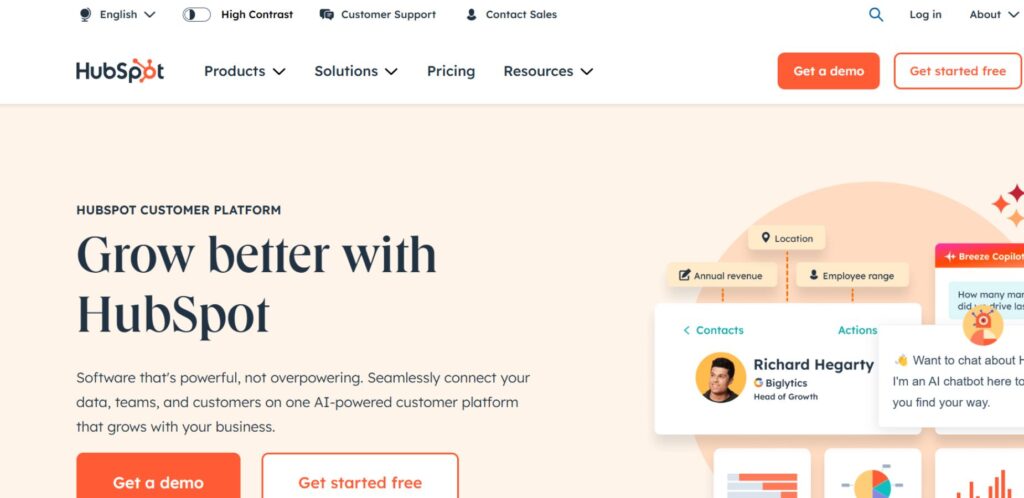
Email marketing seamlessly works with HubSpot’s CRM platform; therefore, it is one of the best Email list management tools for small and large enterprises. It has simple navigating intuitive tools for list splitting, automation, as well as analytics. The marketing center delivers integration of all customer relationship management, campaign creation, and evaluation processes.
From the free version to customized solutions and paying plans, HubSpot targets startups, SMBs, and corporations. However, the use of the advanced features requires a pay upgrade and it is worth every cent since the information and reports are detailed.
Key Features:
- Seamless CRM integration.
- Advanced contact segmentation.
- Comprehensive reporting dashboard.
Pros:
- A free tier with basic features.
- Powerful analytics and insights.
- Scalability for growing businesses.
Cons:
- Expensive premium plans.
- Requires training for advanced features.
- Limited customization options in the free version.
Ideal For: Medium to large enterprises.
Pricing: Starting at $50/month.
Rating: 4.7/5
Website: www.hubspot.com
4. ActiveCampaign
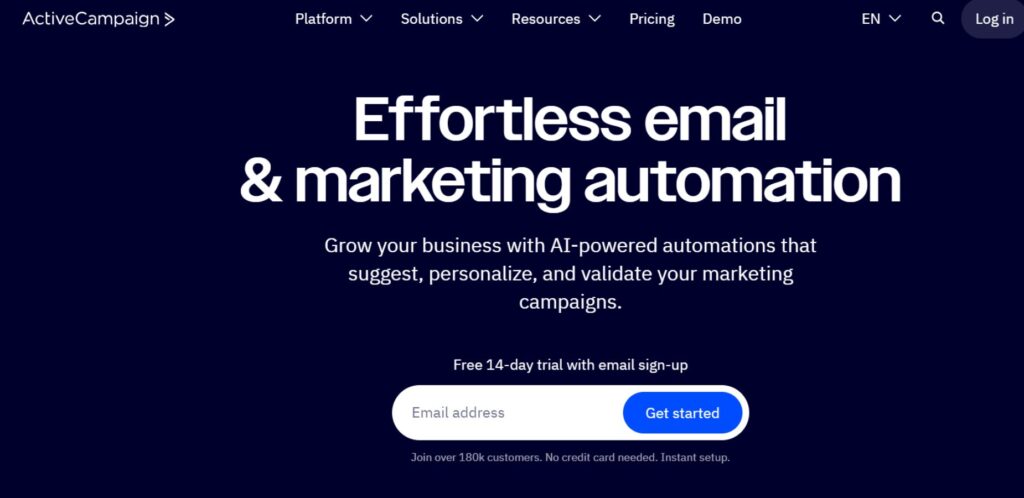
ActiveCampaign stands out among the Email list management tools providing solutions to incorporate email marketing, CRM, and automation. They provide customer targeting using predictive send time, real-time content, and automation recipes. Boasting on its impressive automation feature and customer service, the active campaign is often used by business and e-commerce platform service industries.
It is easier to use than some other software but has a high initial level of difficulty which is good for little money needed for smaller companies. The platform’s availability and additional conveniences mean it continues to be the go-to tool for any business wanting to generate long-term customer connections while successfully adapting to the regularly changing environment of communication.
Key Features:
- Predictive sending for optimal engagement.
- Dynamic content personalization.
- Automation recipe library.
Pros:
- Exceptional automation capabilities.
- Affordable for small businesses.
- Strong customer support.
Cons:
- Slightly complex interface.
- Limited integrations in the basic plan.
- The steeper learning curve for beginners.
Ideal For: E-commerce and service-based businesses.
Pricing: Starting at $29/month.
Rating: 4.5/5
Website: www.activecampaign.com
5. GetResponse
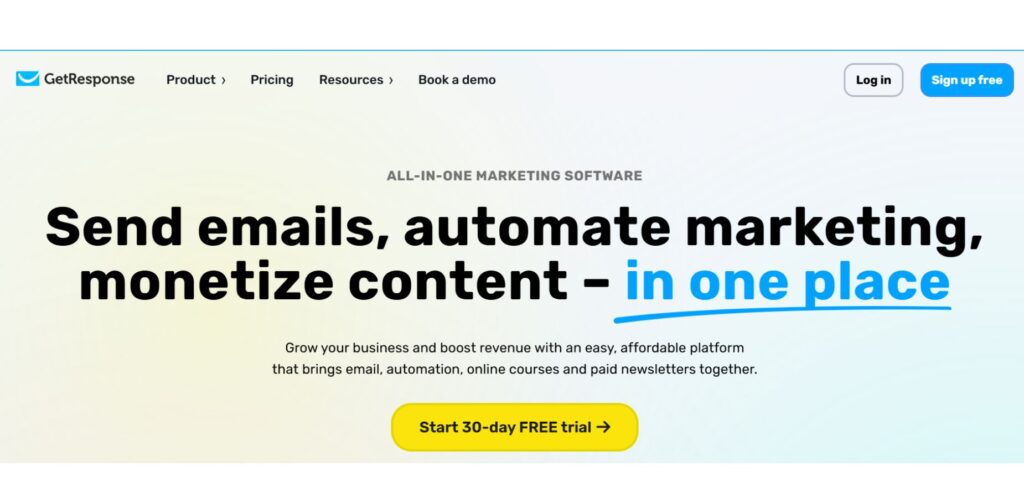
GetResponse is a uniquely suitable option for Businesses looking for the Best Email list management software free solution with additional Marketing tools. The principle is built up as an all-in-one tool that allows for accomplishing email marketing, landing pages, and webinars all in one place. Some of the additional features are flexible subscriber lists, artificial intelligence-based email-sending time options, and templates.
Freelancers and small businesses are the best placed to take advantage of affordable pricing and effective automation. Although the section on its reporting tools and customer support it offers on the lower tiers is somewhat cut down, GetResponse offers all your marketing needs in one package for the user who is after a simple, yet efficient solution. It is best suited for businesses that need affordable and versatile efficient marketing tools.
Key Features:
- AI-powered email timing.
- Built-in webinar hosting.
- Custom landing page templates.
Pros:
- Affordable pricing tiers.
- All-in-one marketing solution.
- Strong automation tools.
Cons:
- Limited customer support on lower plans.
- Basic reporting features.
- Slightly outdated interface.
Ideal For: Freelancers and small businesses.
Pricing: Starting at $19/month.
Rating: 4.4/5
Website: www.getresponse.com
6. AWeber
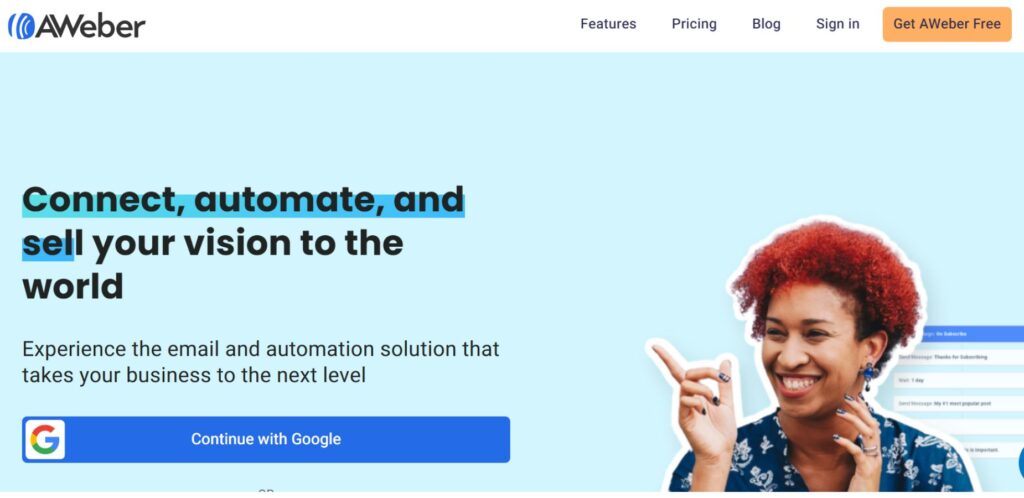
AWeber is one of the best choices for simple and easy-to-use Email list management software free for business. It has smart designer tools for email templates, better segmentation options, and auto follow-up for better list management.
Offering unlimited email on all of its plans, AWeber is ideal for startups and bloggers. Compared to its competitors, it has fewer vital functions and integrated services, but its low cost and highly developed customer service attract newbies.
AWeber offers the basic features marketers need for creating and nurturing an efficient email campaign. Thus, it still serves as a dependable choice benefiting small business entities thanks to its quite straightforward nature.
Key Features:
- Smart designer for email templates.
- Advanced segmentation and tagging.
- Automated follow-ups.
Pros:
- Simple and intuitive interface.
- Reliable customer support.
- Unlimited emails on all plans.
Cons:
- Fewer integrations than competitors.
- Limited advanced features.
- Slightly outdated templates.
Ideal For: Bloggers and startups.
Pricing: Starting at $19.99/month.
Rating: 4.3/5
Website: www.aweber.com
7. Sendinblue
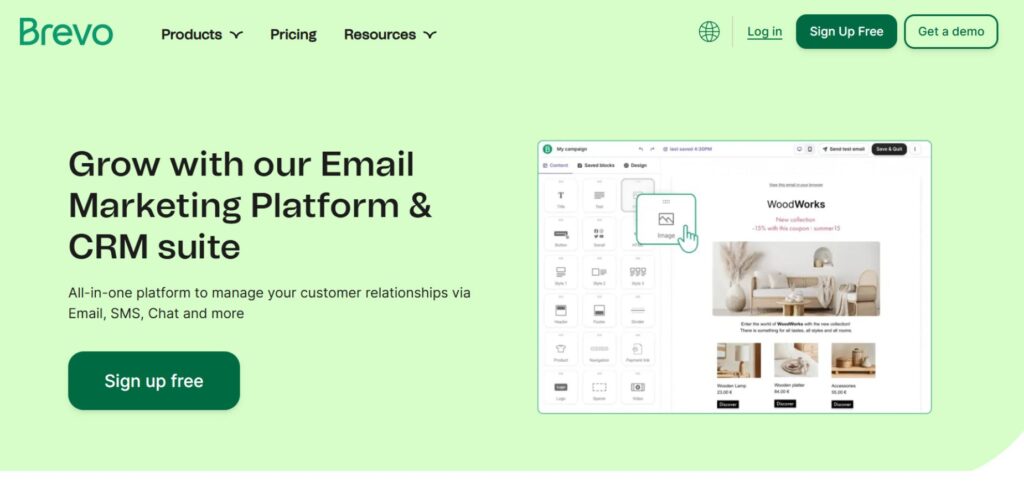
All in all, we have discussed that Sendinblue is an affordable tool in the list of 10 Best Email list management software in 2025 that must have strong tools for businesses. Some of the special features that you will get from it are; It allows for the addition of an unlimited number of contacts, integrated SMS, and transactional emails.
Free features are highly included in the platform, and basic features and premium plans offer expansion for those businesses who need to sort larger emails. All factors considered Sendinblue’s ease of use, depth of automation, and integrated CRM make it well-suited to the needs of SMBs and e-commerce businesses.
Despite the limitation to the number of emails in the free version, this platform offers tremendous value for those businesses that are searching for a marketing tool that can meet all their needs, but at the same time, does not require vast investments.
Key Features:
- Unlimited contacts on all plans.
- SMS and email marketing integration.
- Transactional email capabilities.
Pros:
- Free plan with generous features.
- Easy-to-use interface.
- Comprehensive automation tools.
Cons:
- Limited email volume in the free plan.
- Basic reporting tools.
- Higher pricing for advanced features.
Ideal For: SMBs and e-commerce brands.
Pricing: Starting at $25/month.
Rating: 4.6/5
Website: www.sendinblue.com
8. ConvertKit
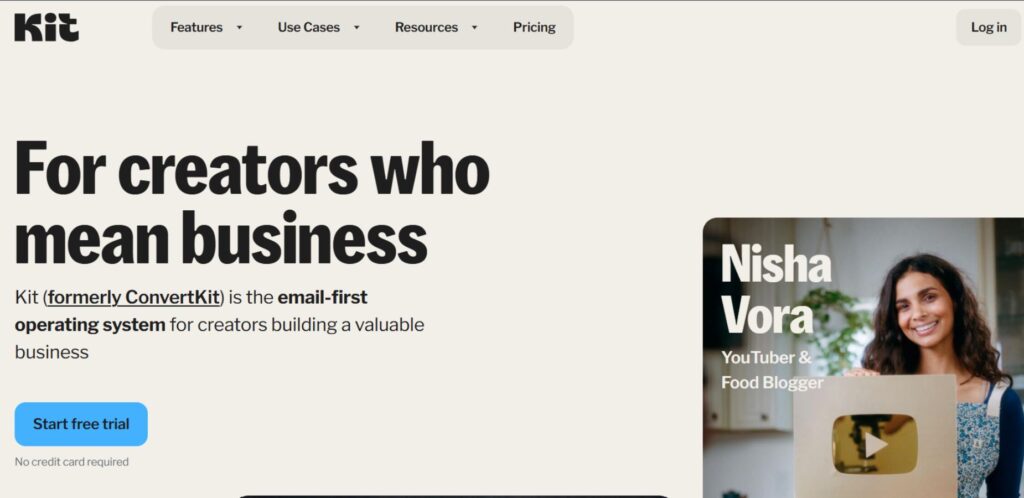
ConvertKit has a specific niche in targeting creators and influencers, making Email list management software very easy to use by providing tools to make audience interaction a breeze. These include visual automation builder and subscriber tagging are used in the campaign customization for enhanced contact. This and many other features make the paid Version of ConvertKit a favorite among content marketers, and it fully integrates with Shopify and WordPress.
It supports exporting only with plain formatting and does not offer several reporting and template features, it is easy to use for different users due to its simple interface and affordable pricing for scale. Why It Is Good For Creators ConvertKit is perfect for creators who want an easy platform to handle and cultivate subscribers which makes it perfect for individual talents and small businesses.
Key Features:
- Visual automation builder.
- Subscriber tagging for personalization.
- Seamless integration with creator platforms.
Pros:
- Intuitive design.
- Excellent for content creators.
- Scalable pricing plans.
Cons:
- Limited templates.
- Lacks advanced reporting.
- Expensive for larger lists.
Ideal For: Content creators and influencers.
Pricing: Starting at $15/month.
Rating: 4.5/5
Website: www.convertkit.com
9 Zoho Campaigns
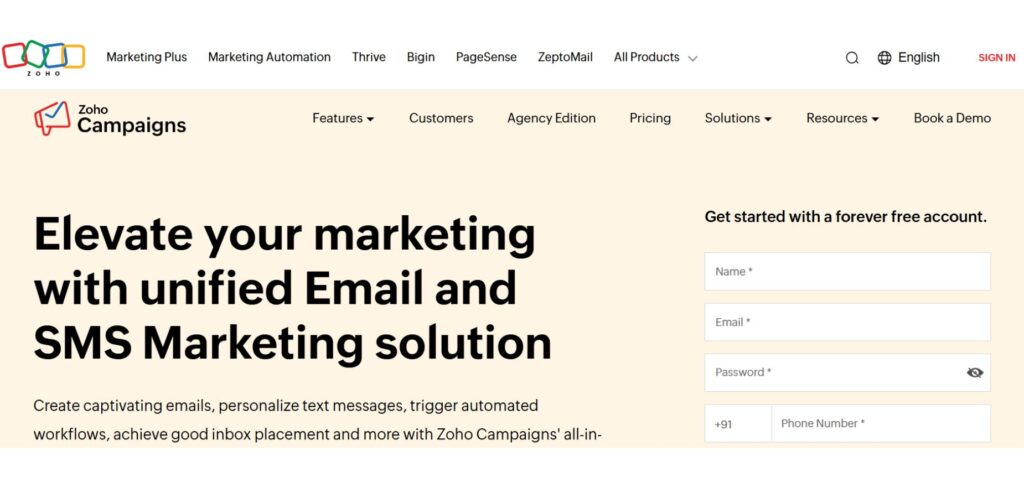
Another advantage of the use of Zoho Campaigns is that it’s part of the Oho business tool, making it one of the best Email list management tools. It has an easy-to-use drag-and-drop editor, flexible campaign workflows, and real-time analysis to improve campaign performance.
The rather low-pricing model, along with the large number of connections to various platforms, makes it rather attractive for organizations that are already using tools from the Zoho suite. Zoho Campaigns is not very intuitive if you are not already using Zoho and lacks several of the features if you are on a lower-tier plan, however, it provides ample utility for businesses that require an all-in-one marketing platform. It is more helpful for those who want to integrate this email marketing system with other Zoho tools and utilities.
Key Features:
- Drag-and-drop editor.
- Integration with Zoho CRM.
- Real-time analytics.
Pros:
- Affordable pricing.
- Wide range of integrations.
- Customizable workflows.
Cons:
- Limited features in lower plans.
- Complex for non-Zoho users.
- Average customer support.
Ideal For: Businesses using the Zoho ecosystem.
Pricing: Starting at $5/month.
Rating: 4.3/5
Website: www.zoho.com/campaigns
10. Drip
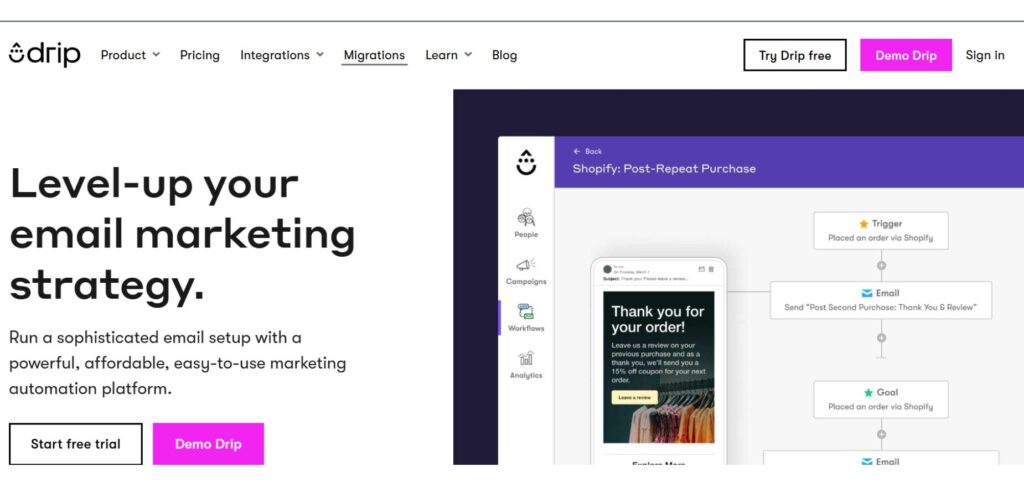
Drip is an intelligent tool designed precisely for online stores, which makes it to the list of 10 Best Email list management software in 2025. It is designed to provide several packaged workflows, real-time segmentation, and click-to-dial/ SMS marketing for enhanced conversion. The consumer profiling feature plus
the simple layout of the platform makes it easier for businesses to fine-tune their strategies. Although it is expensive for small businesses, Drip’s custom-built options such as email triggers for customers’ behaviors are highly profitable for e-commerce businesses. Despite the competition, Drip is the best tool to keep young businesses focused on improving users’ experience and increasing market impact through refined tools and strategies.
Key Features:
- Pre-built e-commerce workflows.
- Dynamic segmentation.
- SMS marketing integration.
Pros:
- Excellent for e-commerce businesses.
- Strong analytics.
- Intuitive interface.
Cons:
- Expensive for small businesses.
- Limited templates.
- Lacks advanced CRM features.
Ideal For: E-commerce businesses.
Pricing: Starting at $39/month.
Rating: 4.4/5
Website: www.drip.com
How to Choose the Best Email List Management Software
- Assess Your Needs: Identify your business size and marketing goals.
- Scalability: Ensure the AI email writer software can grow with your business.
- Ease of Use: Look for user-friendly interfaces.
- Integration: Check compatibility with existing tools.
- Budget: Compare features within your price range.
- Support and Training: Ensure robust customer support and learning resources.
Conclusion
Choosing the appropriate email list management software is going to be crucial in impactful marketing in 2025. This is because various platforms offer a combination of tools that can be adopted by businesses depending on their needs, some of the platforms include Mailchimp, Constant Contact, and HubSpot.
You need to make sure that you understand all your needs and with the help of these top tools, it will be easier for you to enhance your email marketing and get higher results. Check out these top 10 Best Email List Management Software in 2025 to enable you to make the right decision for your enterprise.
Explore More AI Tools:
- AI Tools for IT Professionals
- AI Tools for Poster Making
- AI Tools for Finance
- AI Tools for Presentations
FAQs
What is email list management software?
Some of the functions of an email management list are the following inefficient marketing campaigns:
What is the best software to manage an email list of prospects in the year 2025?
Hubspot, Constant Contact, and Mailchimp are highly-ranked tools, with the former two proving to be the most versatile and versatile.
What is the price for managing email lists?
Free up to $50/month or more depending upon which features are included and how many subscribers are being managed.
Can we change the management of our email list and the software, which is used for it, in the future?
Of course, the fundamental elemental functions are yes, most tools do allow data export and import for transition purposes.
Does the email list management software require that one has knowledge of technical skills?
No, there are a great many truly easy tools with the capability to use drag-and-drop and with great support.
